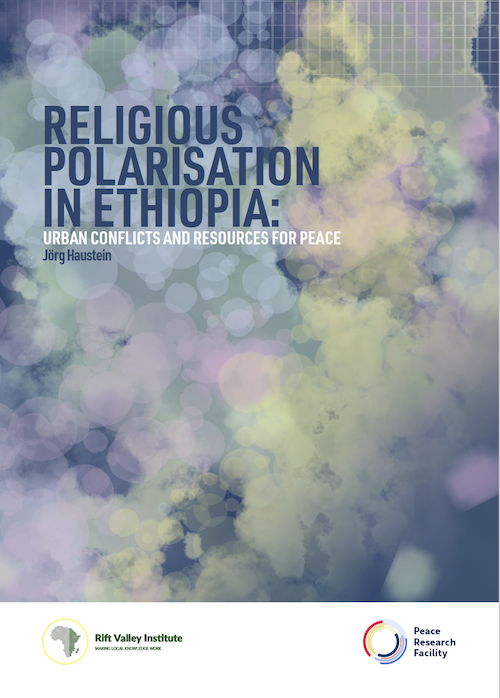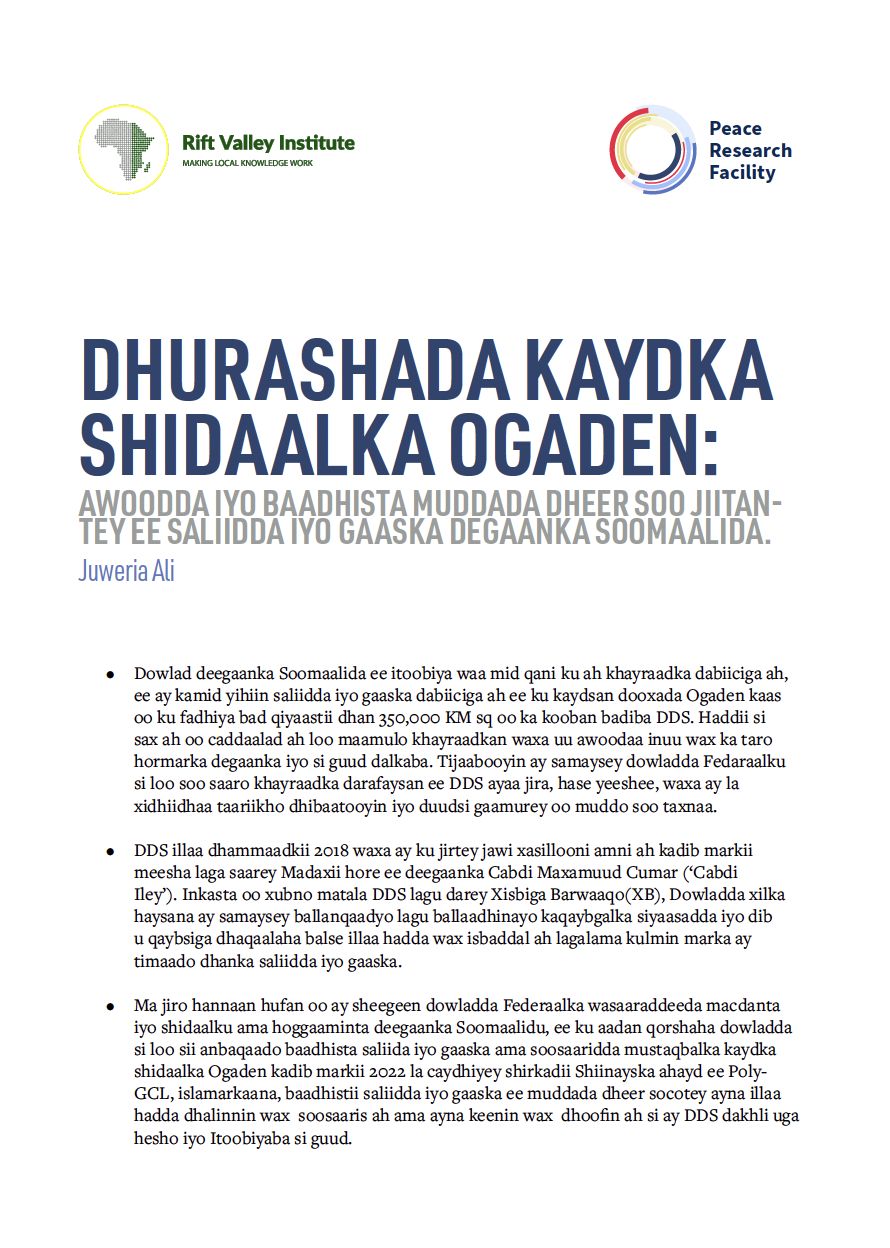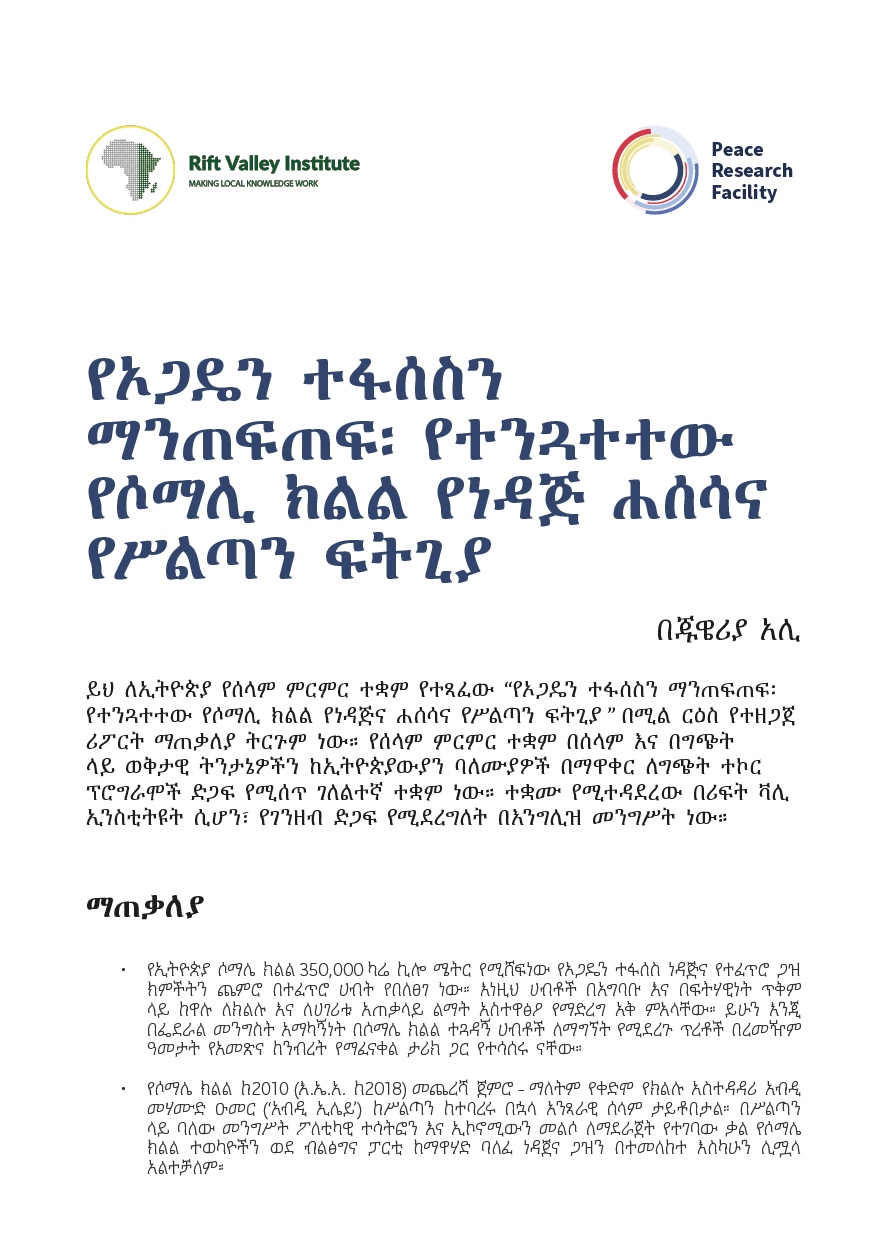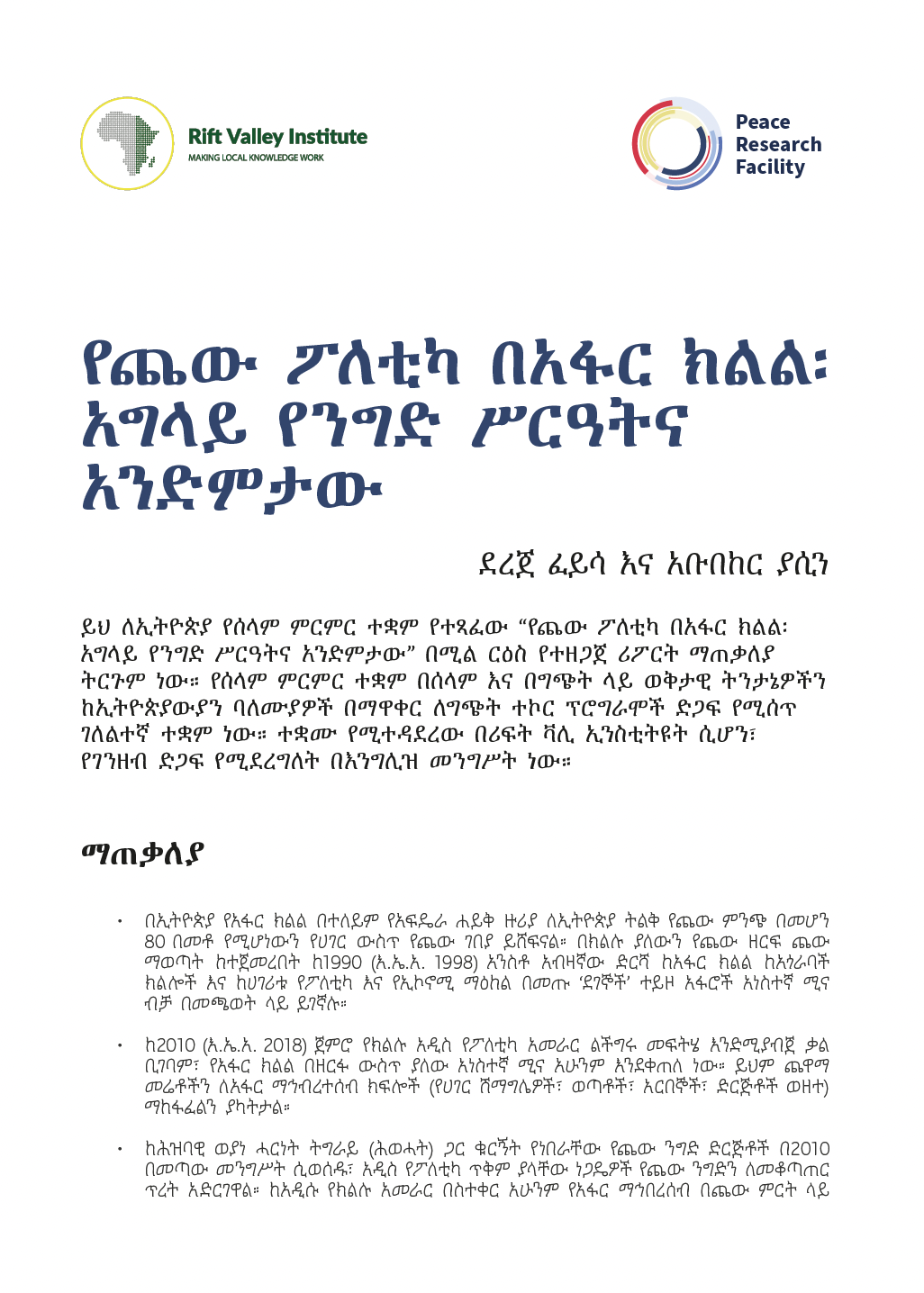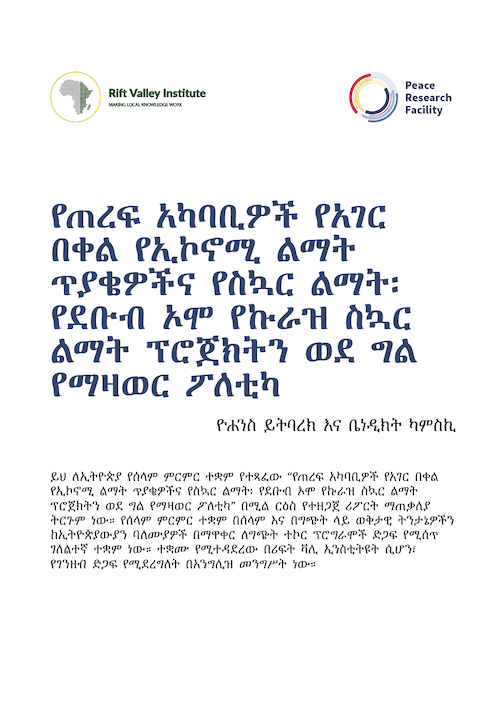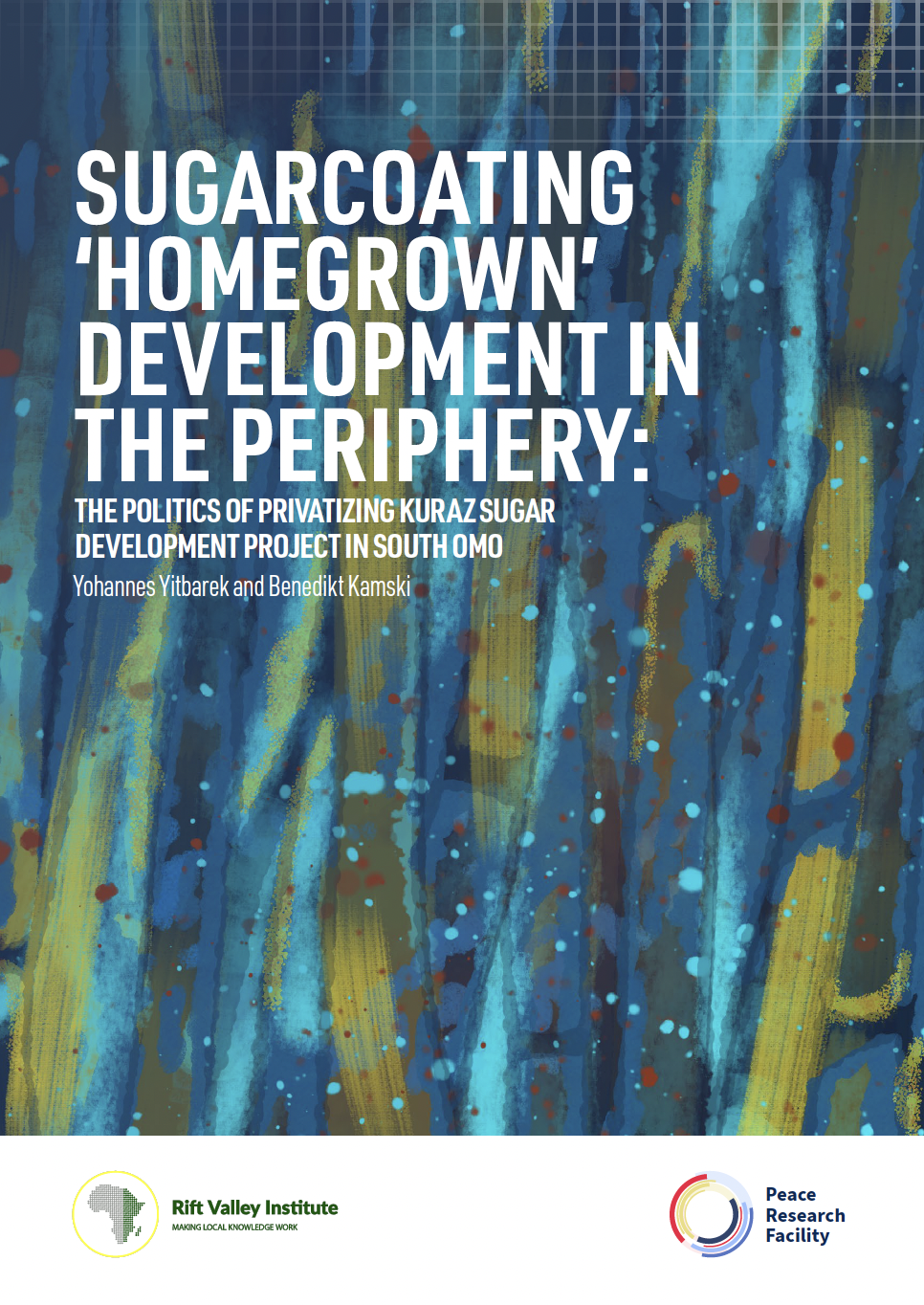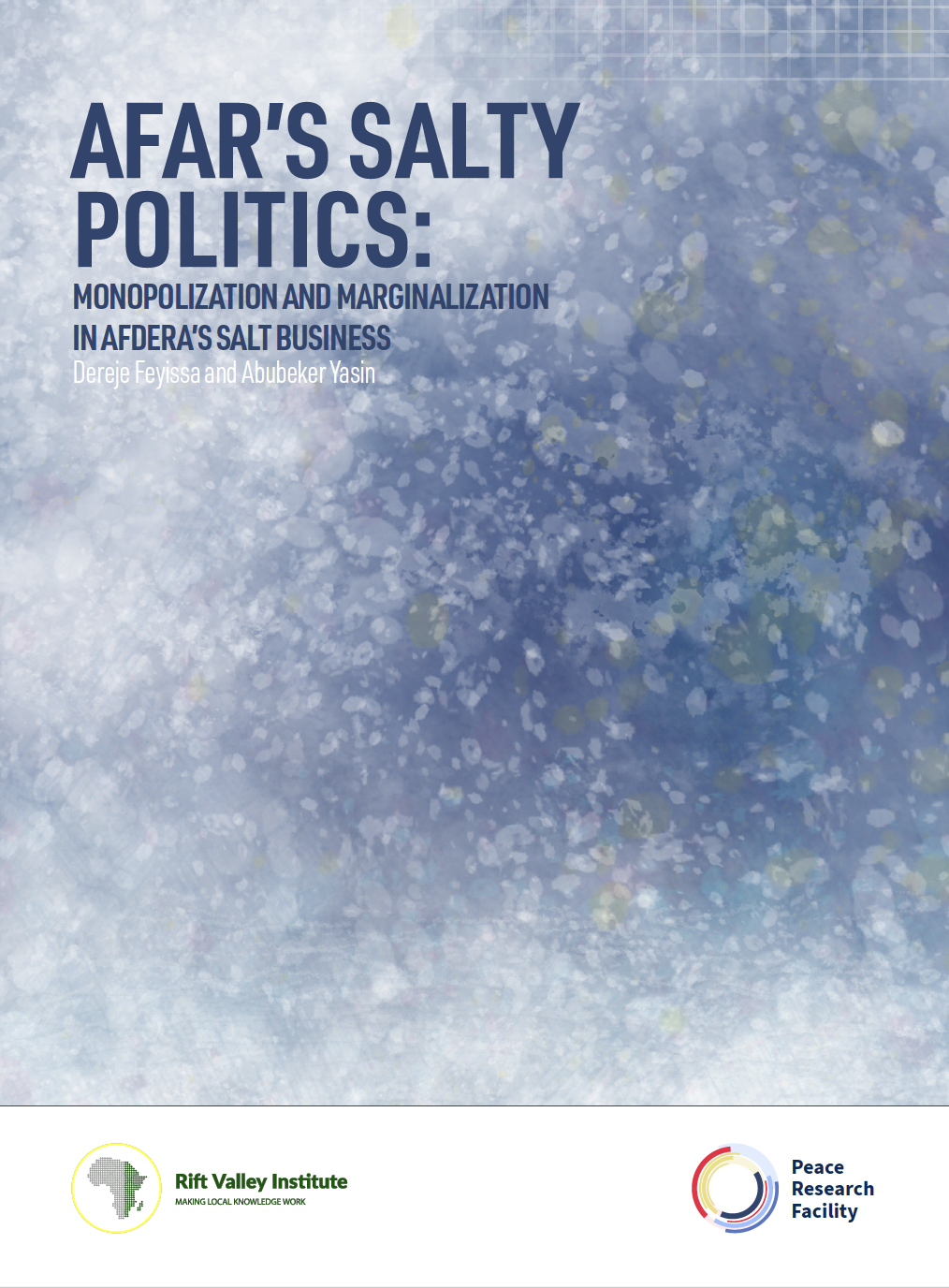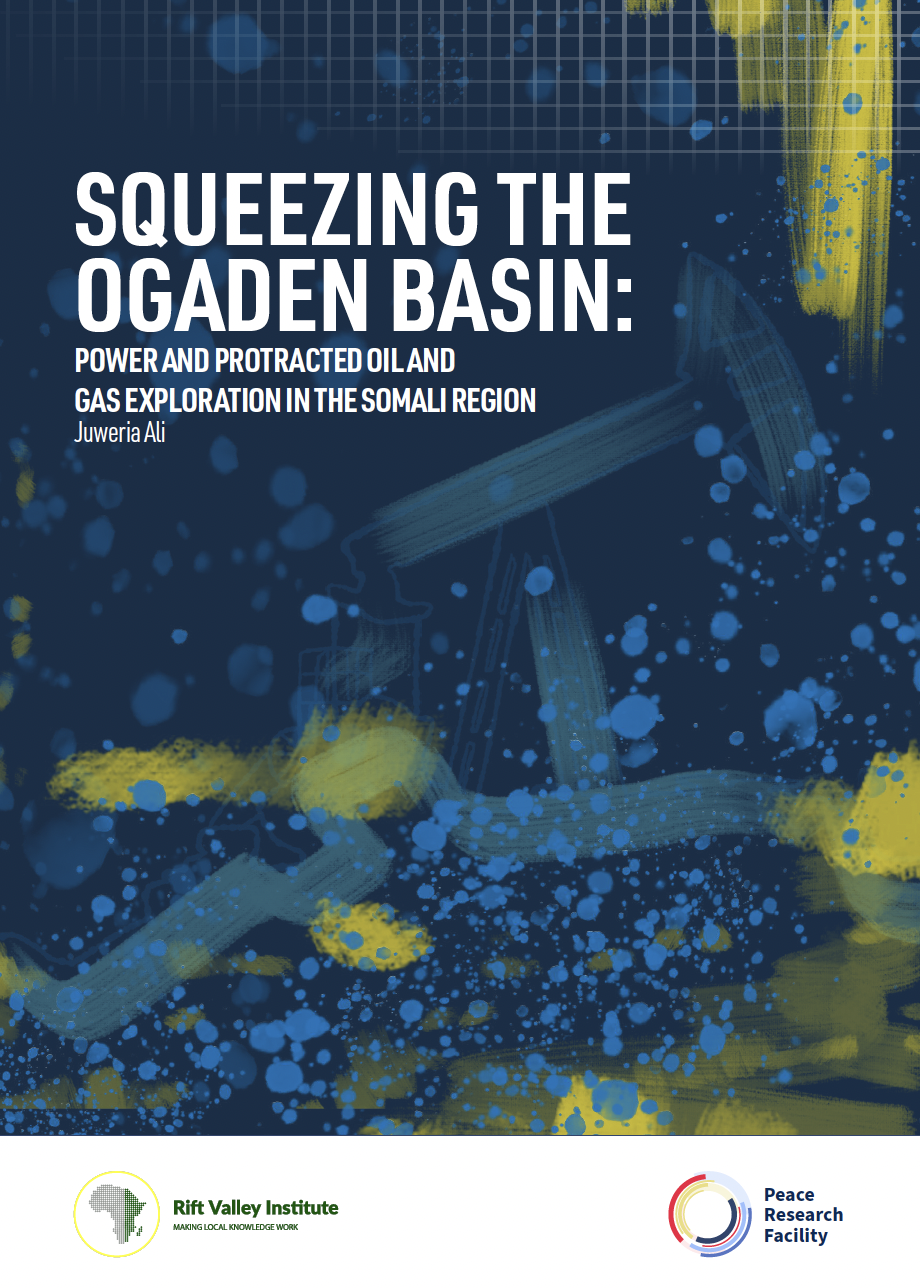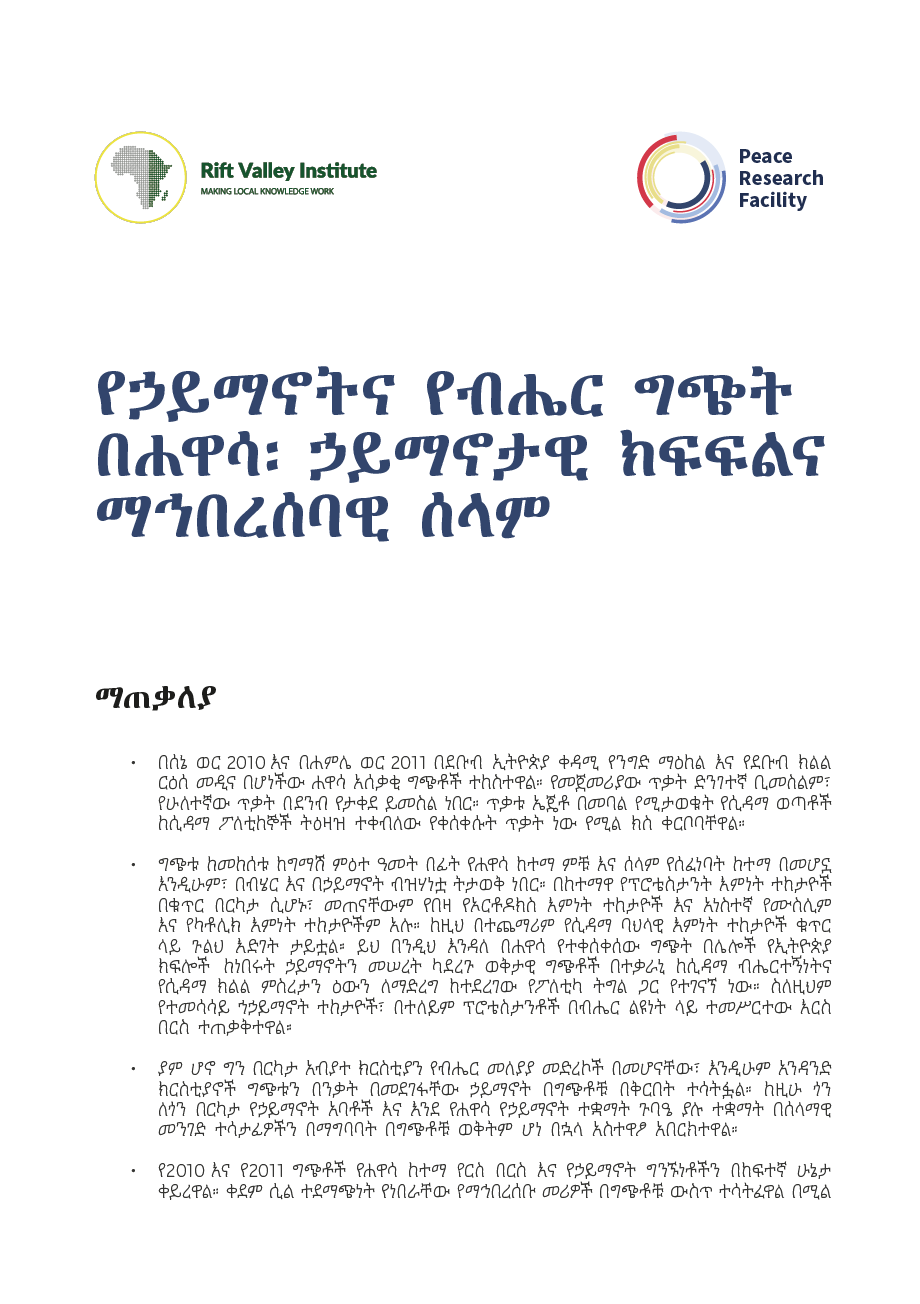SUMMARY • This report studies the role of religion in recent inter-communal conflicts in Ethiopia outside of Addis Ababa. While not entirely neglecting disputes and perceptions in the capital, it seeks to paint a fuller and more versatile picture…
RVI publishes books, research reports, research papers, briefings and meeting reports in a range of formats. Publications cover policy, research, arts, culture and local knowledge in the countries of eastern and central Africa. Research publications—books, reports and papers—are peer-reviewed. Some RVI publications are also available in French and/or Arabic.
The RVI is a signatory of the Budapest Open Access Initiative (2001); all publications are free for download in PDF format under Creative Commons licences. The views expressed in books and reports published by the RVI are those of the authors, not the Institute.
SEARCH
PUBLICATION TYPE
LANGUAGE
REGION
COUNTRY
Find the English version here and the Amharic summary here….
ማጠቃለያ የኢትዮጵያ ሶማሌ ክልል 350,000 ካሬ ኪሎ ሜትር የሚሸፍነው የኦጋዴን ተፋሰስ ነዳጅና የተፈጥሮ ጋዝ ክምችትን ጨምሮ በተፈጥሮ ሀብት የበለፀገ ነው። እነዚህ ሀብቶች በአግባቡ እና በፍትሃዊነት ጥቅም ላይ ከዋሉ ለክልሉ እና ለሀገሪቱ አጠቃላይ ልማት አስተዋፅዖ የማድረግ አቅ ምአላቸው። ይሁን እንጂ…
ማጠቃለያ Find the English version of this report here….
ማጠቃለያ Find the English version of this report here….
SUMMARY • Since the Prosperity Party (PP) came to power in Ethiopia in 2018, expectations have grown that its government will revitalize Ethiopia’s sugar industry through the privatization of eight sugar factories, including plantations of several thousand hectares in…
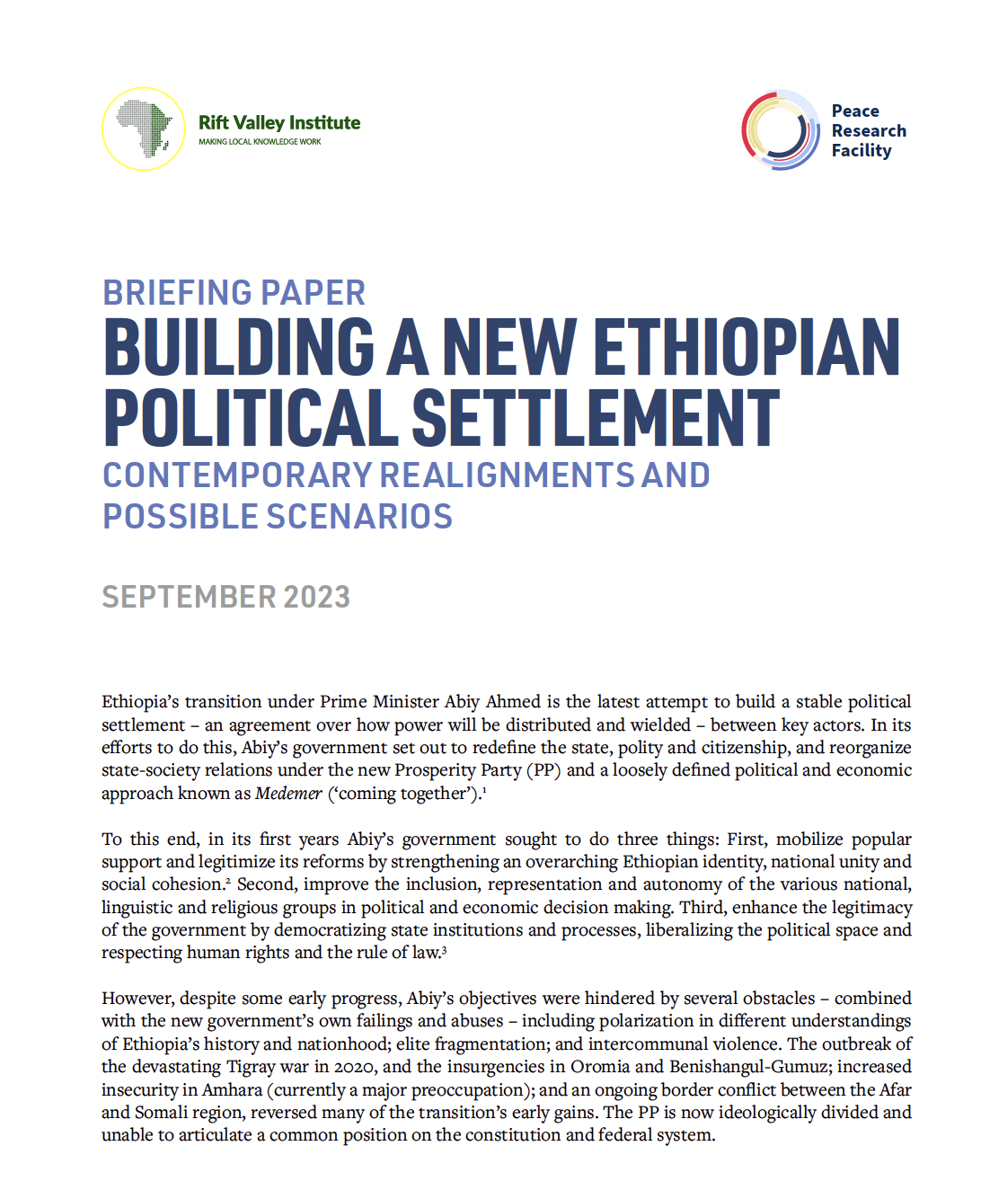
- Download
Ethiopia’s transition under Prime Minister Abiy Ahmed is the latest attempt to build a stable political settlement – an agreement over how power will be distributed and wielded – between key actors. In its efforts to do this, Abiy’s…
SUMMARY • Ethiopia’s Afar region, especially around Lake Afdera, is the country’s main source of salt, accounting for 80 per cent of the national market. The salt sector in the region has been dominated by non-Afar investors from neighbouring…
SUMMARY • Ethiopia’s Somali Regional State (SRS) is rich in natural resources, including oil and natural gas reserves in the Ogaden Basin which covers an area of approximately 350,000 sq km comprising much of the SRS. If managed properly…
ማጠቃለያ Find the English version of this report here….
Recent Publications

Political Economy of Cash and Markets in Sudan
February 27, 2026
The research provides a snapshot of the war in Sudan in the period from February to April 2025. However, the war is dynamic, with political alliances and territorial control changing. The April 2023 conflict between the Sudan Armed Forces (SAF)

Rethinking Ethiopia II: Youth and politics
February 26, 2026
Seminar report Rethinking Ethiopia, a collaborative essay competition initiative between Addis Ababa University’s Institute for Peace and Security Studies (IPSS) and the Rift Valley Institute’s (RVI) Peace Research Facility (PRF), offers a platform for Ethiopian youth to express their ideas

2025 Year in Review
February 16, 2026
The 2025 Year in Review provides an overview of the Rift Valley Institute’s work over the past year across eastern and central Africa. The report highlights RVI’s research and publication outputs, education and training activities, and public forums and convenings,

